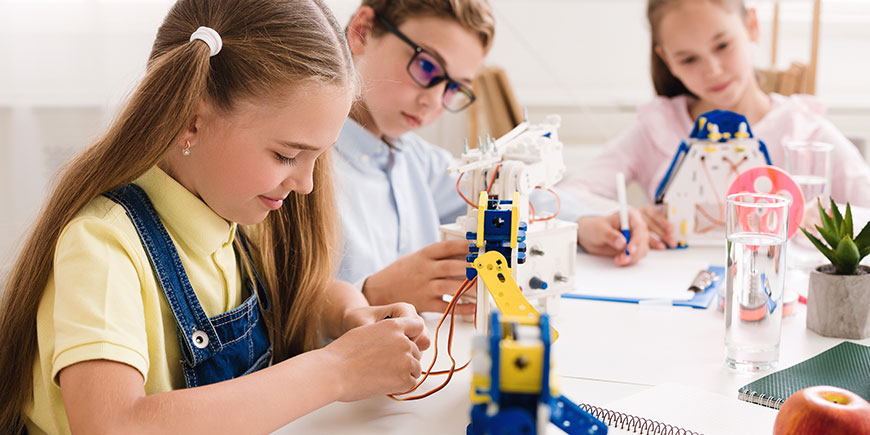As young as 6, children think boys are better at computer science and engineering. Less prejudice in other STEM fields, such as maths.
The way we think, talk and educate children is still so flawed by gender stereotypes that little boys as young as 6 are led to believe that boys are better at computer science and engineering than girls.
This is according to a meta-analysis of studies published in the Psychological Bulletin, which found that – fortunately – these biases in thinking about women and science do not affect all STEM (science, technology, engineering and mathematics) disciplines in the same way. Stereotypes about mathematics, for example, are less gendered.
An overview of the last 40 years
The study was conducted by the American Institutes for Research (AIR) as part of a project funded by the US National Science Foundation to clarify some conflicting findings on stereotypes in STEM – for example, to better understand whether these biases affect all fields of science equally, and how they affect girls’ education and careers.
Stereotypes at age 6
Although at the age of 6, the majority of children (43%) say that there is no difference between boys and girls when asked who is better at computing, 35% think that boys are better at it and only 22% think that girls are better at it.
When asked about engineering, 52% of 6-year-olds think it is more of a “boys’ field”, 39% think there is no difference and only 10% think girls are better at it (although there is no shortage of female role models: two of them, ESA astronaut Samantha Cristoforetti and the “Lady of the Comets” Amalia Ercoli Finzi, the first woman in Italy to graduate from the Faculty of Aeronautical Engineering).

Other fields, other prejudices
The study also found that at all ages, gender stereotypes in mathematics appear to be much less entrenched than in other STEM disciplines. At age 6, children responded that girls were better at maths 32% of the time, boys 28% of the time and no difference 40% of the time.
This is in spite of the widely held belief that girls are still not as good at maths as boys.
In addition, girls are considered to be better at verbal skills such as reading and writing: a prejudice that appears around the age of eight and is reinforced over time.
Working on who trains
«The early onset of these biases signals that children are picking up stereotypes about computing and engineering at home and in other environments before they even start kindergarten,» explains David Miller, lead author of the study.
«Parents, early childhood educators and after-school programmes have a key role to play in helping them revise this narrative,» lest these ideas limit girls’ future aspirations in fields such as artificial intelligence, coding and aerospace engineering.


